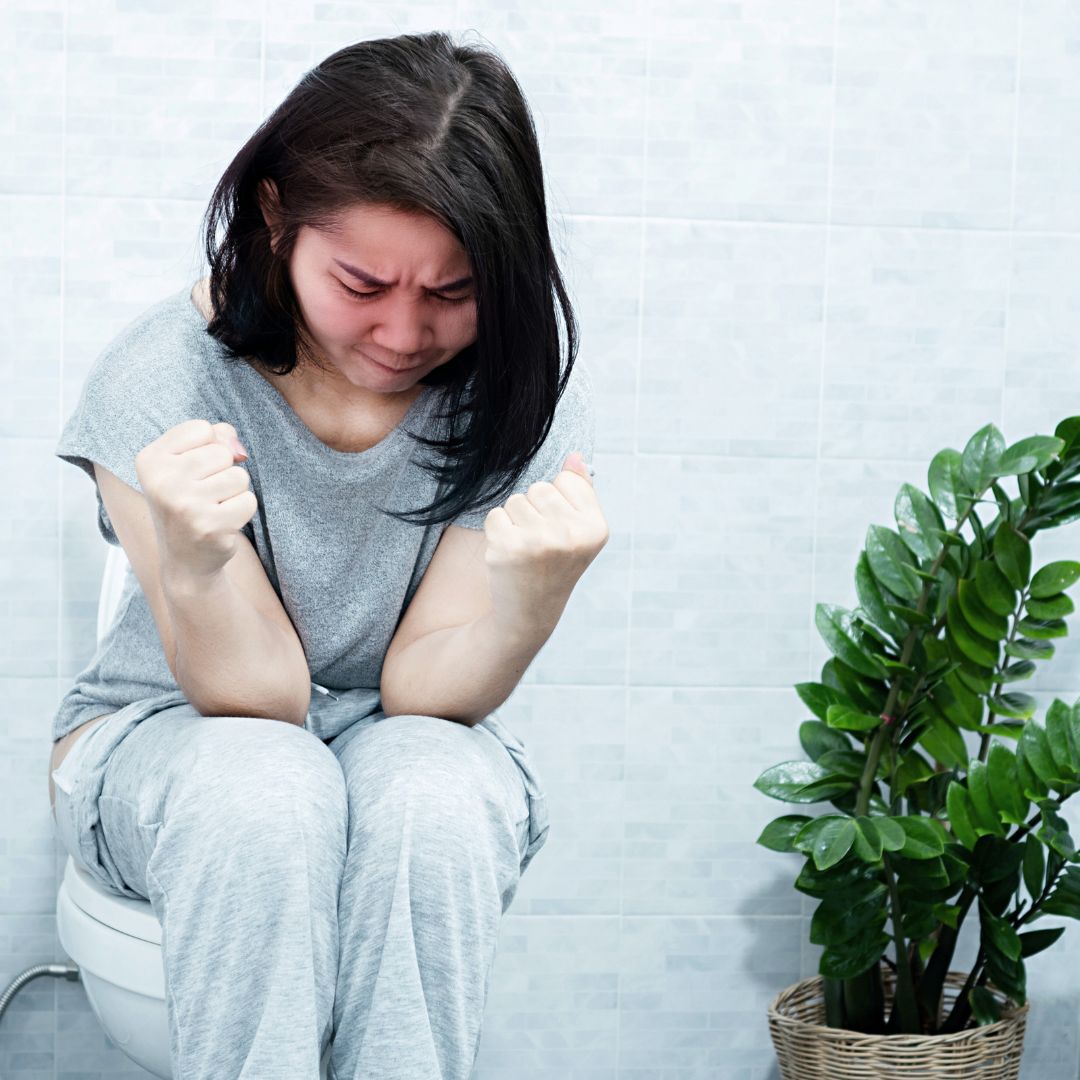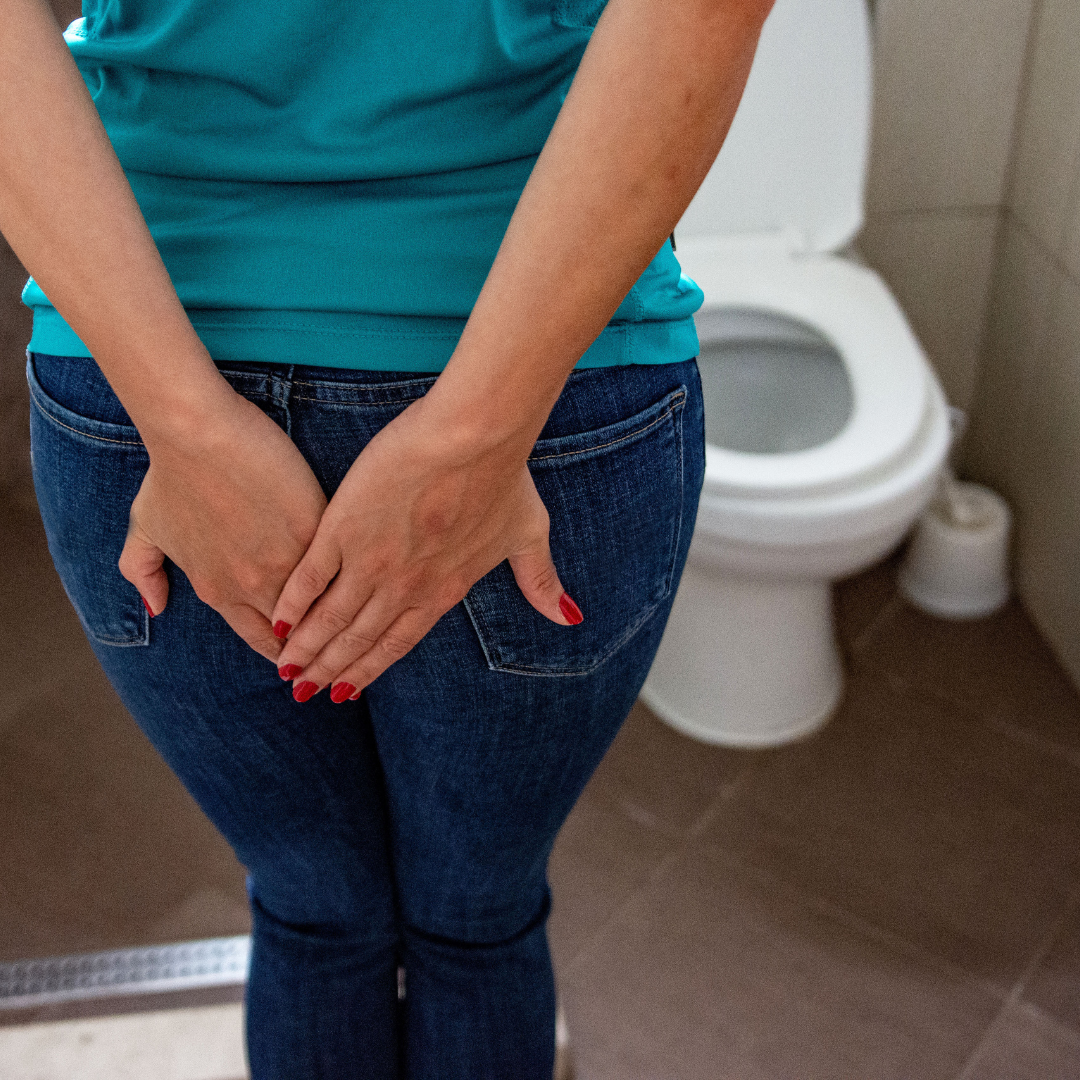Constipation Relief: Quick Home Remedies For When You Can't Poop

Constipation Relief: Quick Home Remedies For When You Can't Poop
Coming to terms with the fact we might be constipated can be hard to digest – literally.
Constipation is more common than you think, with 1 in 7 people experiencing it at any given time, and it can creep up on us when we least expect it. However, as common as it is, so many of us are too embarrassed to chat to a health professional about it. Studies have found that 1 in 5 of us won’t talk to a doctor about constipation due to shame, that’s a lot of people suffering in silence!
Although chatting about a backed-up situation is no one’s idea of fun, it’s important we understand why it happens and how we can try to handle our constipation at home before having to talk to a health professional. Who knows? With the right remedies, you might be able to skip out on that trip to the doctor’s altogether!
Why Constipation Happens
What Is Constipation? – frequency & stool type
Constipation, medically, is determined by how often you're opening your bowels and where it lands on the Bristol Stool Chart, or in layman’s terms, how much you’re pooping and what it looks like when you do.
If you’re dropping some pebbles less than 3 times a week, it’s quite likely you’re experiencing constipation. However, even if you are passing stool, but that stool is hard, dry, or looks like little pebbles, that can also signify constipation. That’s pretty much all there is to it!
Read our blog on different stool types to learn more.
Common Triggers: dehydration, low fibre, inactivity
Constipation can be caused by lots of things, from medication to sitting on your bottom too often. However, there are three common triggers which are worth taking note of in case you find yourself in a bunged-up situation.
Dehydration: We should all be drinking around 6-8 glasses of water a day. However, if we slack on this too much, it’s our bowels that suffer. When dehydrated, our intestines can absorb more water from our stool, leaving our logs dry enough to build a out-house. Water also lubricates the gut, so poop can slip ‘n’ slide as it pleases.
Low fibre: Fibre is the binding glue of your poop, helping it to hold its shape, move through your intestines seamlessly, and keep it squidgy and smooth for easy passing. When we’re lacking fibre, things can dry up, making for a rugged, rickety passing of your poop and leading to constipation. We should be eating around 30g of fibre a day and consuming it with a glass of water to help with a smooth ride through the gut.
Inactivity: When we live a sedentary lifestyle for too long, the lack of activity can start to impact our guts. Moving around encourages contractions and motion in our bowels, which can help move poop along. Movement also sends blood flow to the gut, giving it more umph and activity, thus making pooping easier.
Fast-Acting Home Remedies You Can Try Today
Drink More Water: Tea & Coffee Count!
As we’ve mentioned, water is incredibly important to keep your logs from building a dam inside of you. Poop is around 75% water so it’s super important we keep hydrated. 6-8 glasses of water can seem daunting at first, but we get water from all over the place! That morning cuppa? It’s hydrating you just the same. We also get a lot of our daily water intake from the foods we eat, which can help to hydrate us more.
Speaking of coffee...
Have a Morning Cup: Coffee and Potential Gut Stimulation
We all know that coffee contains caffeine, but it doesn’t just keep your eyes open, it can also help some people open bowels!
Caffeine can have a knock-on effect which encourages your colon to spasm, and your body to increase the production of stomach acid and digestive enzymes, preparing it to let everything loose. Now this isn’t the same for everyone, but some people might see the effects of coffee after 30 minutes or so.
So next time you find yourself wondering “why does my morning coffee always send me running to the loo?” There’s your answer.
Dried Fruit With A Sorbitol Punch
If you ever tried a sip of your nanna’s prune juice when you were younger, you’ll know the taste is slightly...divisive. You either love it, or you hate it.
However, prunes, figs, raisins and more can help shift things along due to the fact they contain sorbitol. This is a type of sugar alcohol which can draw more water to the bowels, soften stools and cause the gut to get moving. Be careful though, as overconsumption of sorbitol can cause bloating and diarrhoea, especially for those with irritable bowel syndrome or on a low FODMAP diet.
Herbal Teas For Natural Constipation Relief
Us Brits love a cup of tea, and who would have thought our morning brew could be the cure for our backside blockages. Herbal teas have been used for centuries for top to bottom relief, from constipation to headaches, so it makes sense that some of them might actually work.
Senna is usually used for its stimulant laxative effect, while peppermint and ginger can help relax the digestive tract and improve bowel movements. Dandelion and cascara tea have also been noted to be beneficial for constipation. Hey, you could even use a cup of one of these to get those 6-8 glasses of water in!
Lifestyle Moves to Keep Things Moving
Walk It Out To Get Poop Moving
Getting that body moving is a great way to get everything else moving (including your poo). It increases blood flow to the bowels, encourages stimulation, and reduces stress, all of which help with easier digestion.
Exercise doesn’t have to be excessive, and many of us aren’t in the position to head down to the perspiration station and partake in HIIT classes or HYROX (whatever that actually is)!
We can get things moving simply by taking short daily walks, promoting the stimulation of the bowel, helping to reduce stress and getting more blood flow to the area. Grab a high fibre snack, hit the pavement, and you're killing two birds with one stone.
(Wheelchair user? Speak to your doctor about alternative activities to get morning).
Timing bathroom visits after meals to train your body
Our bodies love routine, and if you pay close attention, you’ll realise that you probably hit the porcelain throne around the same time each day. Or maybe, your morning coffee, or morning walk always sets off the alert in your head to get to the loo.
We can train our bodies to get used to when it’s toilet time, think Ivan Pavlov's dog conditioning experiment, but for your bowels. By setting a routine, we're telling our bodies who’s boss, and laying the foundation for a more routine toilet experience, which can help with constipation in the long run.
Foods That Help (And Foods to Avoid)
Fibre‑Rich Picks For Constipation Relief
To bulk up and bind your stool for a smooth passage, you’ll want to up that fibre intake. That’s a mix of soluble and insoluble fibre! When we think of soluble fibre (that gels everything together) we should look for oats, barley, beans, lentils, apples, citrus fruits, carrots, Brussels sprouts.
Insoluble fibre (which bulks everything up), aim for whole grains like wheat bran and brown rice, as well as fruits and vegetables with edible seeds and skins, like potatoes with skins, apples with skins, and carrots with skins. Legumes (beans and lentils) and nuts also provide significant amounts of insoluble fibre.
Check out our blog on more natural stool softeners.
Supplements are A-Okay
Now, reaching a fibre target of 30g a day can seem impossible when we look at the back of our food packets. 3g here, 4.5g there, it can take some real mindful eating. That’s where supplements can be super helpful.
An all-time favourite is psyllium husk. You’ll usually find this in two forms, either in a capsule or in powder form. What’s great about powder is that it can be mixed with water, which is needed to help it turn into this gel consistency which aids digestion. You can usually find psyllium husk in any wellness shop.
Skip These To Prevent Constipation
We live in a world where ultra-high processed foods and greasy fried meals are affordable and accessible. It’s more effort to avoid them than to find them at this point. However, these foods can hinder our gut’s ability to get things moving efficiently.
Things like fried food are high in fat, which can be harder for us to digest. Ultra-high processed foods can also disrupt the gut microbiome, throwing things way out of whack and reducing gut mobility. Excessive dairy can also impact how we process food, especially when it comes to IBS and intolerances.
When to see a doctor about constipation
When it comes to seeing a doctor about constipation, we first need to understand what our normal is. That means taking note of how often we usually GO, checking what it looks like and what it feels like. Once we know the baseline of what our normal bowel movements are, we can tell when things are changing.
Lucy Allen, Pelvic Floor Specialist and Physiotherapist, notes that “anything from three times a day to three times a week is classed as normal”
So, if you find you’re pooping less than 3 times a week, or if you’ve noticed that there have been changes in the colour, consistency, or pain associated with your bowel habits, it’s a great idea to speak with a doctor. They’ll be able to let you know what’s going on down there, and what the best course of action is. Simple!
Once you finally get things flowing through you, it’s a good idea to have a soothing and moisturising way to clean up below the waist. The Wype Starter Kit is the perfect way to keep fresh as a daisy, even on the muckiest of days.


I must say Wype has been a game changer for me. I loved my starter pack (so much thought has gone into it). The little travel canisters are genius. Now I know I can stay as fresh as a daisy, even on the go. Fantastic. I loved your article about constipation. AND you mention psyllium – which I use, it has also had a very beneficial effect on my toilet habits. And I follow all the other suggestions in the article. Beautifully written with humour and great advice without feeling like a lecture. Thank you Wype!
My specialist advised me if all else fails to help with constipation a spoon of milk of magnesia will do it 🫡